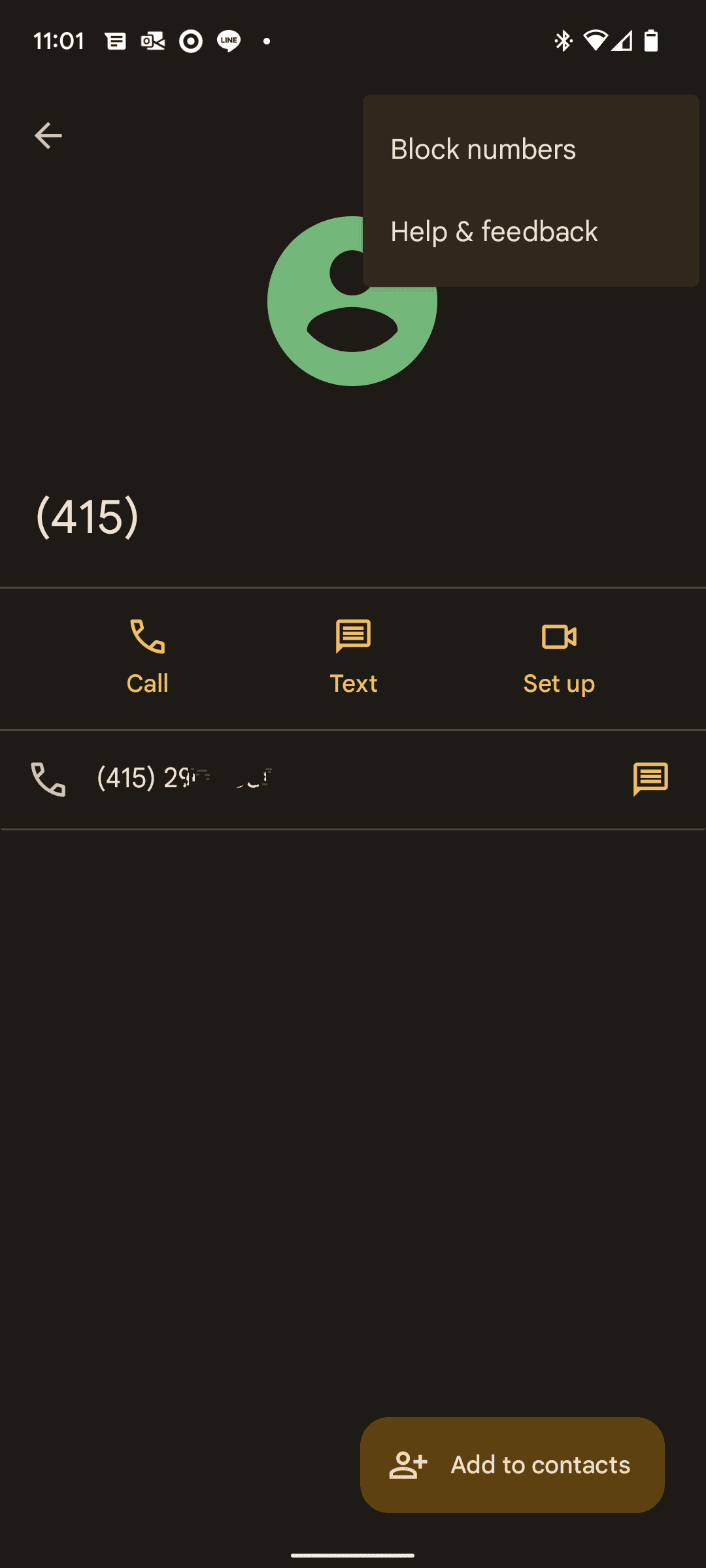The Ultimate Guide to a Successful Discovery Call

Your Call Data in One Place
AI call notes, real-time coaching, conversation intelligence, CRM integration, and more...
"Opportunities for Effective Sales Conversations"
Introduction: What is a discovery call?
In the world of sales, a discovery call is more than just a conversation. It's an effective tool for connecting with potential clients, learning about their needs, and laying the groundwork for a successful sales journey. During a discovery call, you delve deeper into their pain points, goals, and aspirations, gaining valuable insights that allow you to tailor your solutions and ultimately close deals.

I. Importance of Discovery Calls
Why are discovery calls crucial for your sales success? Let's explore their significance:
(a) Building Relationships and Trust
You can establish a personal connection with your prospects through discovery calls. You lay the groundwork for a reliable relationship by actively listening to and empathising with their problems. Customers are more likely to transact business with someone they feel is aware of their needs.
(b) Gathering Key Information
During a discovery call, you gather critical information that allows you to create customised solutions. You can learn about their pain points, desires, and decision-making process by asking the right questions and encouraging open dialogue. With this information, you can present a tailored pitch that speaks to their specific needs.
(c) Qualifying Leads
Not every lead is the same. You can evaluate the suitability of potential customers for your offerings with the aid of discovery calls. If they fit the description of your ideal customer, you can tell by learning about their needs, finances, and timeline. By saving time and resources, this qualification process enables you to concentrate on leads with the highest conversion potential.
(d) Overcoming Objections and Concerns
Discovery calls allow you to address any objections or concerns that a prospect may have. You can alleviate their concerns and demonstrate the value of your product or service by actively listening and responding empathetically. This open dialogue lays the groundwork for a smoother sales process and eliminates potential stumbling blocks later on.
II. Preparing for a Successful Discovery Call
It's important to adequately prepare before starting a discovery call. Let's start with the fundamental actions:
(a) Setting Objectives
Start by clearly defining your goals for the discovery call. What information do you require? What are your desired outcomes? Setting specific objectives allows you to stay focused and ensures a productive conversation.
(b) Researching the Prospect
Spend some time investigating your prospect and their company. Learn about their market, difficulties, and any newest information or developments. You can demonstrate your understanding and ask pertinent questions thanks to this research, giving others more faith in your knowledge.
(c) Structuring the Call
A well-structured call establishes the foundation for a simple and engaging conversation. Make a list of the main points you want to cover and the questions you want to ask. Stay flexible and adapt to the flow of the conversation to keep it natural and conversational.
III. Building Rapport: The Key to Connection
Building rapport is essential for establishing trust and creating a positive atmosphere. Let's explore effective strategies:
(a) Creating a Welcoming Environment
Start the call on a friendly and upbeat note. Offer a friendly greeting, express gratitude for their time, and demonstrate a genuine interest in their company. From the start, make them feel at ease and valued.
(b) Active Listening: Hearing Beyond Words
Actively listen throughout the entire call. Pay attention to both spoken and non-spoken cues, including voice inflection and body language. You can respond in a more meaningful and individualised way if you truly comprehend their motivations and concerns.
(c) Mirroring and Matching: Creating a Connection
The use of mirroring and matching techniques fosters familiarity and rapport. Mirror the prospect's pacing, tone of voice, and body language subtly. They will feel understood and connected thanks to this technique, which also improves the conversation as a whole.

IV. Asking Questions: Uncover Insights and Needs
Asking the right questions is the heart of a successful discovery call. Let's explore effective techniques:
(a) Open-Ended Questions: Inviting Meaningful Dialogue
Ask open-ended questions to promote in-depth responses. Prospects are prompted to share their thoughts, difficulties, and goals by these questions, which call for more information than a simple "yes" or "no" response. You can learn a lot from this conversation and adapt your solution as a result.
(b) Probing Deeper: Unveiling Hidden Aspects
Do not be afraid to delve deeper into the prospect's responses. Investigate further to uncover underlying issues, motivations, and desired outcomes. You can better understand their needs and present a tailored solution that addresses their unique situation by delving into specifics.
(c) Uncovering Pain Points: Addressing Core Challenges
A discovery call's primary goal is to identify and comprehend the prospect's pain points. What difficulties do they face? How are these difficulties affecting their business? You can position your offering as a solution that solves their specific problems by empathically exploring their pain points.
V. Presenting Your Solution: Tailored and Compelling
After gathering valuable insights, it's time to present your solution. Let's explore best practices:
(a) Tailoring Your Pitch: Addressing Their Needs
Create a customised presentation using the information gathered during the call. Highlight how your product or service addresses their specific pain points and aligns with their goals. Customization demonstrates your dedication to meeting their specific needs and distinguishes you from generic offerings.
(b) Addressing Objections: Building Confidence
Consider and respond to any objections the prospect might have. Pricing, implementation difficulties, or competition are typical objections. You increase your solution's credibility and confidence by proactively responding to these worries. Prepare enticing responses that highlight the value and advantages you offer.
(c) Demonstrating Value: Painting the Picture
Make the value of your solution compelling and concrete. Give specific examples of how it helps them to overcome challenges, boost productivity, or achieve their goals. Use case studies, real-world examples, or client testimonials to illustrate the effect your product or service can have on their business.

VI. Next Steps: Nurturing the Sales Journey
As the discovery call nears its end, it's crucial to define clear next steps. Let's explore the essential aspects:
(a) Summarizing the Call: Reinforcing Understanding
Summarize the key ideas covered during the call, highlighting their objectives, pain points, and difficulties. This shows your involvement and understanding of their needs and helps ensure agreement on the merits of your solution proposal.
(b) Defining the Next Steps: Clear Action Plan
Define the next steps in the sales process with prospects. Clearly state steps and responsibilities. Make sure the prospect is aware of what to expect and comfortable moving forward, whether it's a product demo, more information, or a follow-up call.
(c) Scheduling Follow-Up Actions: Maintaining Momentum
Set a timetable for follow-up actions. Send promised materials/info promptly and schedule the next interaction, like a call or meeting. Driving sales forward proactively shows commitment, professionalism, and maintains momentum.
Conclusion: Mastering the Art of Discovery Calls
For sales professionals, mastering the art of a successful discovery call is a game changer. You can unlock opportunities, foster meaningful connections, and drive sales success by properly preparing, building rapport, asking insightful questions, and effectively presenting your solution. Accept the discovery call as a valuable tool in your sales arsenal and watch your company thrive.
Unlock the full potential of your discovery calls with NOOTA, your trusted AI assistant.
Our cutting-edge platform enables you to easily record and transcribe meetings, ensuring you never miss a crucial detail.
We empower you to optimise your sales conversations and drive meaningful results with advanced analytics and call-tracking capabilities.
Experience the future of sales communication and take your discovery calls to new heights. Try NOOTA.

FAQs
1. What if the prospect is unresponsive after a discovery call?
Don't be discouraged if the prospect doesn't respond after a discovery call. Follow up with a polite email or phone call, reminding them of the value discussed during the call. Keep the lines of communication open and provide additional support or information they may require.
2. How long should a discovery call typically last?
Discovery calls can vary in duration but aim for a focused conversation within 30 to 60 minutes. Respect the prospect's time while ensuring that you gather sufficient information and establish a connection.
3. Is it necessary to send a follow-up email after a call?
Yes, sending a follow-up email is essential. It allows you to express gratitude, recap the key points discussed, and reinforce your commitment to their success. It's also an opportunity to provide any additional information or resources that can support their decision-making process.
4. What if the prospect cancels or reschedules the call?
Be understanding and accommodating if a prospect needs to cancel or reschedule a call. Remain flexible and offer alternative options that fit their schedule. This adaptability demonstrates your professionalism and commitment to meeting their needs.
5. Can discovery calls be conducted remotely?
Absolutely! With the rise of virtual communication tools, discovery calls can be conducted remotely through video conferences or phone calls. Embrace the flexibility and convenience of remote interactions while ensuring a high level of engagement and connection with your prospects.
Your Call Data in One Place
AI call notes, real-time coaching, conversation intelligence, CRM integration, and more...
Related articles

Forget note-taking and
try Noota now
FAQ
In the first case, you can directly activate recording as soon as you join a videoconference.
In the second case, you can add a bot to your videoconference, which will record everything.
Noota also enables you to translate your files into over 30 languages.

.svg)
.svg)

.webp)

.png)


.svg)
